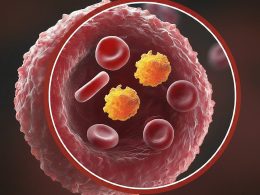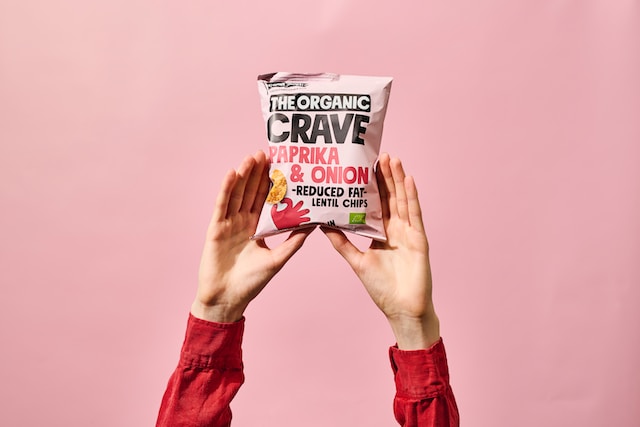Have you ever experienced that mid-afternoon slump where your brain feels like it’s stuck in quicksand, and no matter how hard you try, you just can’t seem to focus or concentrate? We’ve all been there. But did you know that what you eat could be the key to unlocking your cognitive potential? Proper nutrition plays a crucial role in optimizing brain function and improving mental clarity, memory retention, and overall productivity. In this blog post, we’ll explore why proper nutrition is essential for optimal cognitive functioning and provide some practical tips on how to fuel your mind for success. So get ready to feed your brain because knowledge truly is power!
What is the Relationship between Nutrition and Cognitive Functioning?
The relationship between nutrition and cognitive function is complex and multi-layered. At its most basic level, proper nutrition can support cognitive function by providing the brain with the necessary nutrients it needs to function optimally. However, there are also many other factors involved in this relationship, including how well a person eats overall and whether they are getting enough of certain nutrients.
One important aspect of the relationship between nutrition and cognitive function is the role that diet plays in overall health. A healthy diet includes a variety of foods that provide all of the essential nutrients a person needs, as well as plenty of antioxidants and other nutrients that have been shown to promote cognitive function. In addition, eating a healthy diet can help to reduce the risk of developing chronic diseases, such as Alzheimer’s disease or dementia.
In addition to diet, other factors can impact cognitive function, such as exercise and exposure to environmental toxins. Exercise has been shown to play an important role in promoting overall health and well-being, including improved cognitive function. In addition, being exposed to environmental toxins may lead to decreased mental ability over time. Therefore, it is important for people to avoid exposure to harmful pollutants if they want to maintain their Cognitive Functioning abilities over time.
How can Proper Nutrition Support Cognitive Functioning?
The brain is a muscle and like any other muscle it needs proper nutrition to function at its best. The brain is composed of over 100 billion cells and relies on nutrients to fuel its activities.
According to the National Institutes of Health, “Adequate intake of essential fatty acids, vitamins D, E and B6, magnesium, potassium and protein are necessary for the healthy development of the nervous system.” Nutrient deficiencies can lead to poor cognitive function in adults. The following are some common nutrient deficiencies that have been linked with impaired cognitive function:
– Vitamin B12 deficiency: This vitamin is important for normal nerve cell function and can be found in animal-based foods such as meat, poultry, fish and eggs. Deficiency can lead to megaloblastic anemia, a blood disorder that causes fatigue, confusion and difficulty concentrating.
– Vitamin D deficiency: This vitamin is needed for the body to convert sunlight into energy which helps the brain conduct optimal functions. It can be found in fortified foods such as milk products or cereal, as well as certain supplements. Deficiency has been linked with an increased risk of memory problems, depression and autism spectrum disorder (ASD).
– Vitamin E deficiency: This antioxidant is important for protecting cells from damage by free radicals. It can be found in leafy green vegetables, nuts and seeds. Deficiency has been linked with impaired vision, weakened immune systems and heart disease.
What are the Most Important Nutrients for Cognitive Functioning?
There are a few important nutrients that are necessary for optimal cognitive functioning. Some of the most important include:
-Vitamin B12: This nutrient is essential for the proper function of the brain and nervous system. It helps to create new cells, and supports cognitive function by helping to convert energy into memory and nerve signals.
-Folate: Folate is important for pregnant women because it helps to form the neural tube, but it’s also vitally important for adults who don’t have kids. It helps to support the growth of new cells, and can help protect against some types of memory loss.
-Iron: Iron is essential for both developing baby brains and keeping them healthy throughout life. It’s involved in a variety of metabolic processes, including the production of oxygen-rich blood cells which are crucial for cognitive functioning.
How to Get the Right Nutrients for Your Age and Sex
In order to maintain optimal cognitive functioning as we age, it is essential to get the right nutrients. Proper nutrition can help protect against age-related diseases, such as dementia and Alzheimer’s, and may also play a role in preventing cognitive decline.
The following are some key nutrients that are necessary for optimal cognitive function:
1. Omega-3 fatty acids: One of the most important nutrients for healthy brain function is omega-3 fatty acids. These fatty acids have been shown to play a role in neuron health and memory formation. Good sources of omega-3s include oily fish, including salmon, tuna, and mackerel; flaxseed; walnuts; and chia seeds.
2. Fiber: Fiber is another important nutrient for healthy brain function. It helps to keep your intestines functioning properly and can help reduce the risk of developing diabetes or heart disease. Good sources of fiber include oats, fiber supplements like psyllium husk powder or bran flakes, beans (especially peas), fruits (such as apples and grapes), and vegetables (such as leafy greens).
3. Vitamins B12 and D: Vitamin B12 is responsible for helping the brain produce energy; while vitamin D helps to regulate the body’s calcium levels and may be helpful in preventing dementia and Alzheimer’s Disease. Some good sources of Vitamin B12 include meat or poultry liver, dairy products (especially fermented items like yogurt or ke










